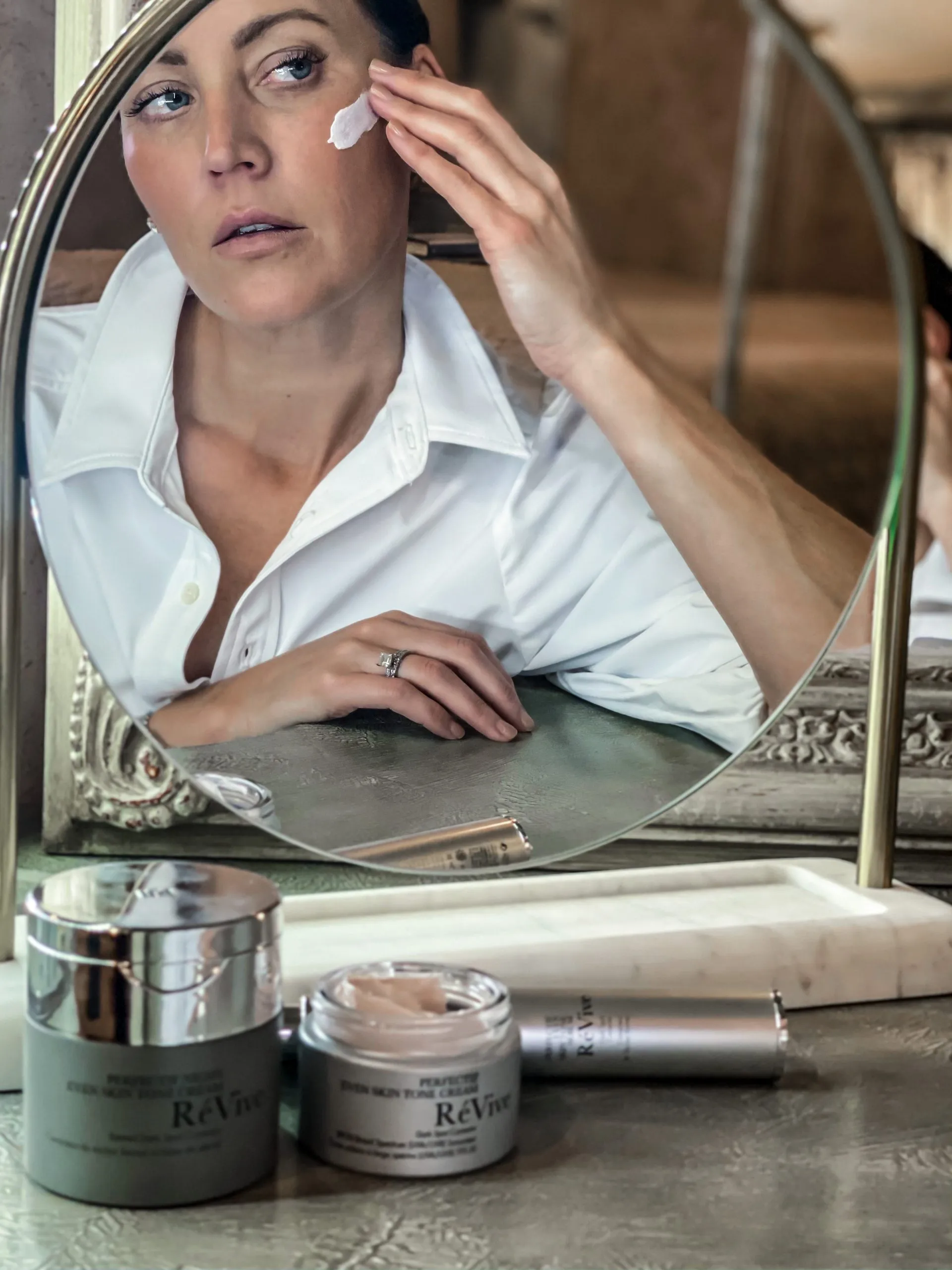Incorporating Vitamin C and Retinol into your skincare routine can be a game-changer when it comes to achieving healthy, glowing skin. These powerful ingredients each offer unique benefits. Vitamin C is known for its brightening and antioxidant properties, while Retinol is one of the most researched active ingredients for reducing the appearance of fine lines and wrinkles.
But with their potency and differing pH requirements, you may be wondering: Can you actually combine Retinol and Vitamin C in your skincare routine? So, in this post, I’ll walk you through everything you need to know about how Vitamin C and Retinol work. Also, whether or not they can be used together, and the best ways to layer them to maximize benefits and minimize irritation.
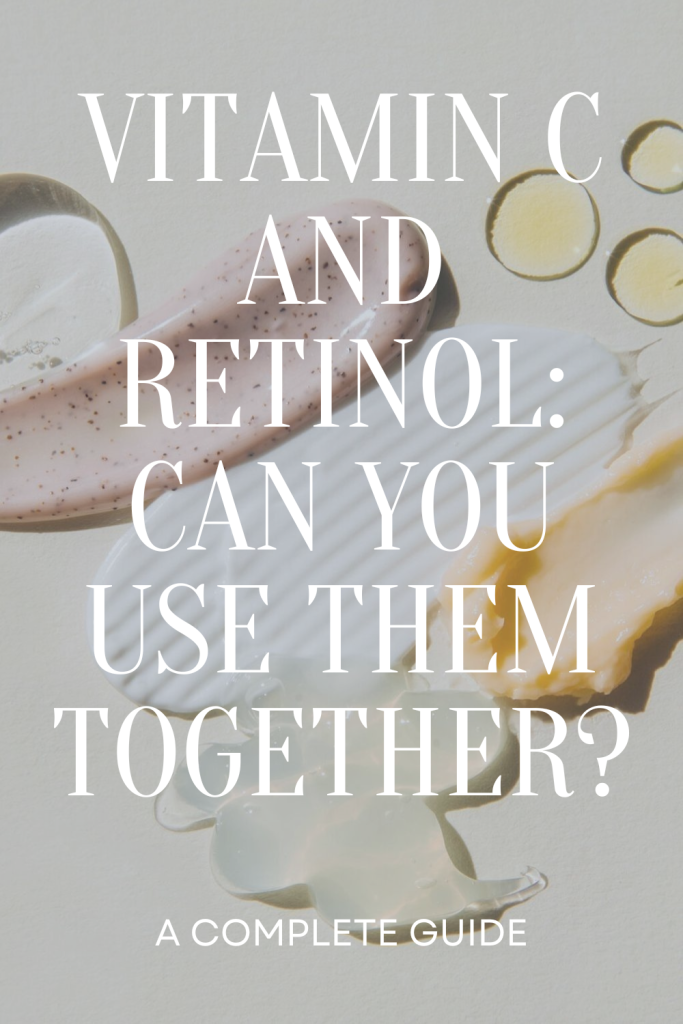
Vitamin C and Retinol: Can You Use Them Together?
This guide will help you better understand how Vitamin C and Retinol work individually and how to use them together. From their unique skin benefits to how they interact with skin types and other skincare products, we’ll break it all down so you can confidently build a routine that targets visible signs of aging, dark spots, and uneven texture.
Whether you’re new to these active ingredients or just want to get more out of your current face serums, understanding how Vitamin C and Retinol work can help you improve your results while minimizing potential side effects, especially if you have sensitive skin.
What Is Vitamin C for Skin
Vitamin C, also known as ascorbic acid, is a potent antioxidant that helps protect your skin from UV rays and environmental damage. Found in many vitamin C serums, it plays a key role in promoting collagen production, reducing inflammation, and also brightening the complexion.
It’s one of the most popular skincare products because it works well across all skin types, especially when paired with ingredients like hyaluronic acid that boost hydration and plumpness.
What Are the Benefits of Vitamin C for Skin
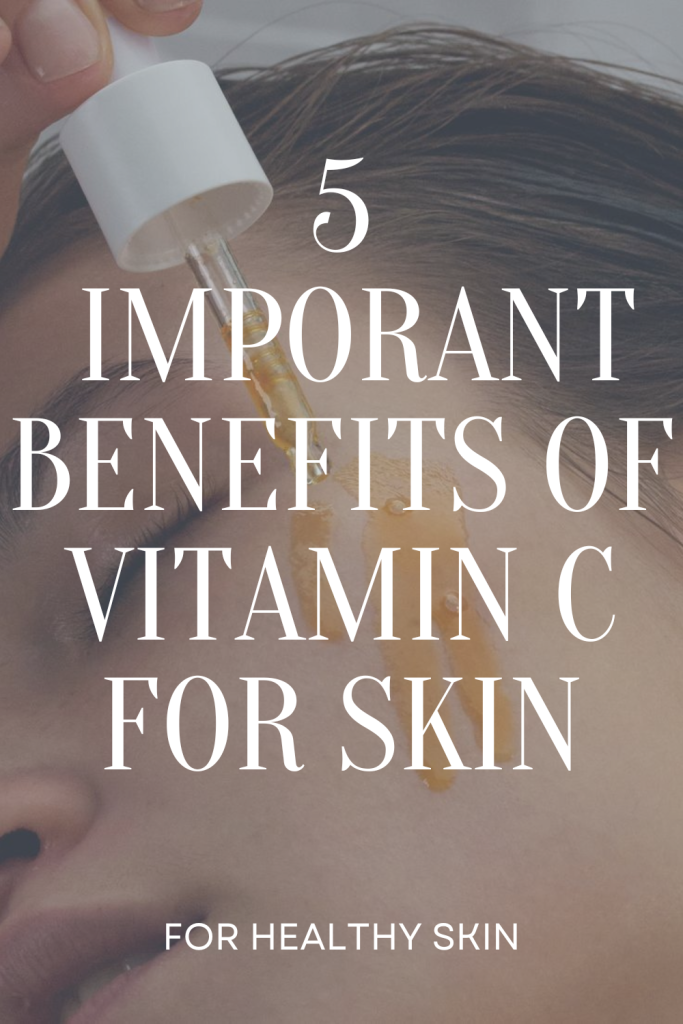
1. Brightens Skin Tone
Vitamin C works to fade dark spots, sun spots, and hyperpigmentation, giving you an overall more even-toned and radiant complexion.
2. Protects Against UV Damage
As a potent antioxidant, Vitamin C also neutralizes free radicals caused by UV rays and pollution, preventing premature aging and skin damage.
3. Boosts Collagen Production
Vitamin C supports the synthesis of collagen, thus improving skin elasticity and helping to reduce the appearance of fine lines and wrinkles.
4. Fights Inflammation
This active ingredient helps calm the skin, making it an excellent option for people dealing with redness or irritation from breakouts or external aggressors.
5. Enhances Hydration
When combined with hyaluronic acid, Vitamin C boosts the skin’s ability to retain moisture, improving skin plumpness and texture.
What Is Retinol for Skin
Retinol is a derivative of vitamin A, and one of the most effective active ingredients in anti-aging skincare. It accelerates cell turnover, which helps clear out clogged pores, fade dark spots, and also smooth out skin texture.
Often found in face serums and creams, Retinol is well-known for its ability to target visible signs of aging, but it also helps improve acne, rough patches, and uneven tone.
What Is the Benefit of Retinol for Skin
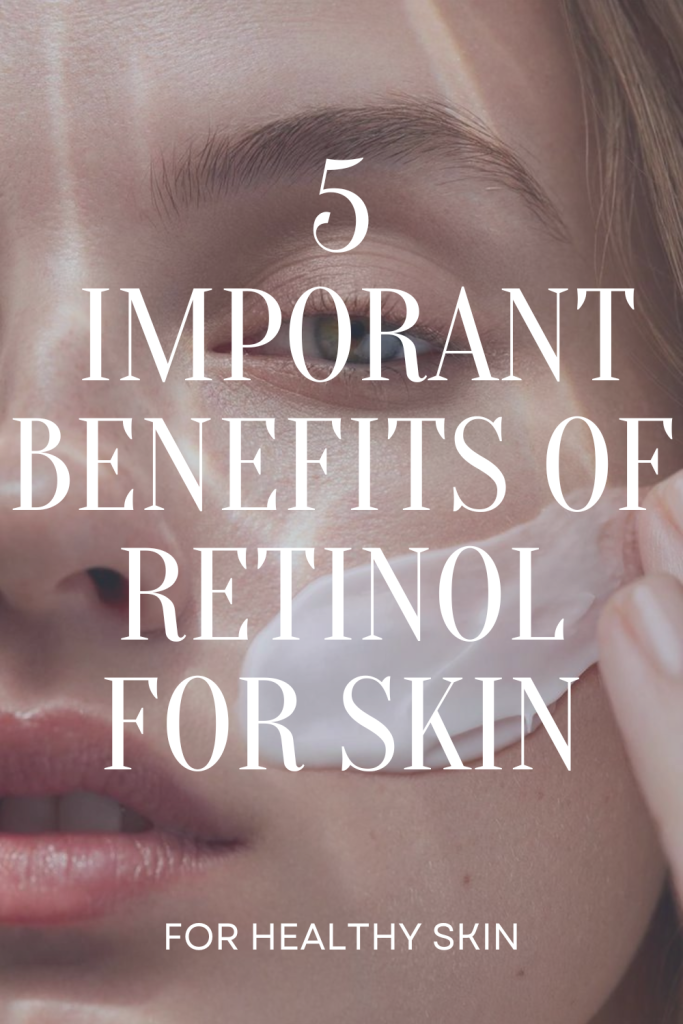
1. Reduces Fine Lines and Wrinkles
Retinol encourages collagen production, which overall helps reduce the appearance of fine lines and wrinkles over time.
2. Improves Skin Texture
Regular use of Retinol helps slough off dead skin cells and smooth the skin’s surface, giving you a more refined skin texture.
3. Clears Acne and Prevents Breakouts
Because it unclogs pores, Retinol is effective in treating and preventing acne while reducing inflammation.
4. Fades Dark Spots and Sun Damage
Retinol accelerates skin cell turnover, allowing your skin to shed damaged cells and replace them with healthy ones more quickly.
5. Enhances Radiance
With consistent use, Retinol reveals a fresher, more radiant layer of skin beneath the surface.
Can You Use Retinol and Vitamin C Together
Yes, but with a few precautions.
Although both ingredients are powerful on their own, combining Retinol and Vitamin C can sometimes irritate sensitive skin if not layered correctly. Their differing pH levels can cause instability or skin barrier disruption when applied at the same time.
However, many dermatologists agree that it’s safe, and even beneficial, to combine Retinol in your skincare routine with Vitamin C when done correctly. The key is in how you layer or space them out.
Some people use Vitamin C in the morning and Retinol at night to get the best of both worlds. Others use products that already combine the two ingredients in stabilized formulas.
How to Use Retinol and Vitamin C Together
Here’s how to safely combine Retinol and Vitamin C in your routine to maximize benefits while minimizing side effects:
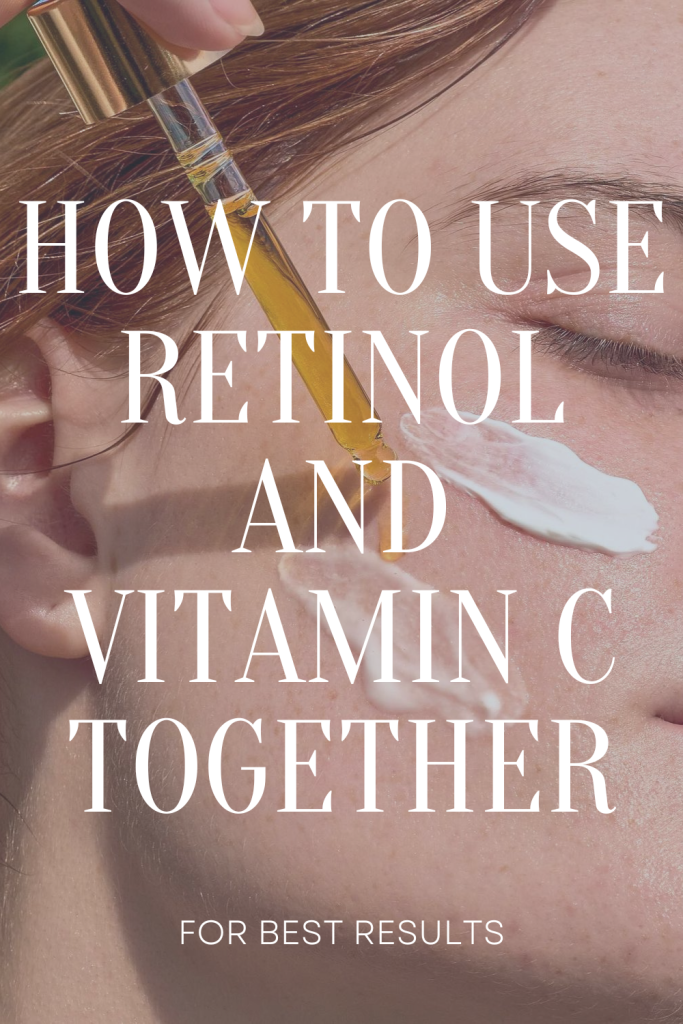
1. Use Vitamin C in the Morning
Vitamin C is best applied during the day because it helps protect your skin from UV rays and environmental stressors. Follow it with broad spectrum SPF to shield your skin.
2. Use Retinol at Night
Retinol makes your skin more sensitive to the sun, so it’s best used at night. Always follow with a nourishing moisturizer or hyaluronic acid serum to support the skin barrier.
3. Alternate Days if You Have Sensitive Skin
If your skin is easily irritated, try using Vitamin C one day and Retinol the next. This method reduces the chance of redness, dryness, or peeling.
4. Start Slow and Build Tolerance
Introduce each ingredient one at a time. Start with 2-3 times a week and gradually increase frequency as your skin adapts.
5. Apply Moisturizer as a Buffer
To reduce irritation, apply a gentle moisturizer after Vitamin C in the morning and again after Retinol at night. This also helps lock in hydration.
6. Look for Dual-Ingredient Products
Some face serums are formulated with stabilized forms of Vitamin C and Retinol, making them safe to use together without irritation.
Final Thoughts
Both Vitamin C and Retinol are powerhouse ingredients that can transform your skin when used properly. They help address visible signs of aging, boost collagen, fade dark spots, and improve skin texture, making them a must-have in your skincare products lineup.
Whether you’re new to these active ingredients or just want to learn how to get the most out of them, the key is to be mindful of how you layer and introduce them into your routine. Listen to your skin type, start slow, and always prioritize hydration and sun protection.
Want to dive deeper into your skincare journey?
Check out:
Shop My Vitamin C and Retinol Essentials
Don’t forget to pin to save for later!
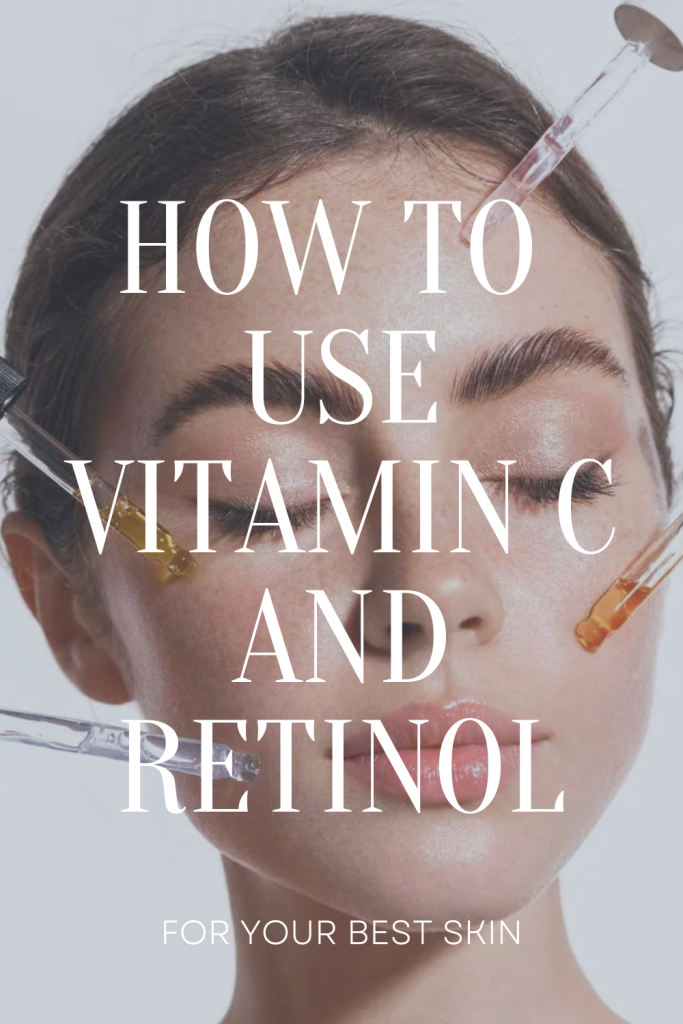
Be sure to check out my most recent posts for more style inspiration!
- 55 + March Nail Ideas
- 6 Home Decor Color Trends
- 14 Korean Beauty Trends
- Transitional Winter to Spring Outfits
- WHAT TO WEAR TO A CASUAL DINNER
Please feel free to email me at thegraydetails@gmail.com if you have any questions! I’m always happy to help with styling or picking out a specific outfit for an event! Have an amazing day!!
You can also download the free LIKETOKNOW.IT app and follow me HERE.
STAY IN THE KNOW: Don’t forget to sign up for my exclusive Newsletter for STYLE TIPS, SALE ALERTS, AND MUCH MORE!
As always, thank you so much for stopping by today, I truly appreciate all of you! xx, Amanda
FOLLOW ALONG
Instagram | Pinterest | Facebook | Shop Instagram | You Tube







